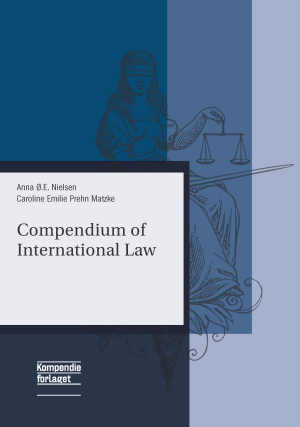This compendium provides a comprehensive overview of the curriculum for the course “International Law” at the University of Copenhagen, making it valuable not only for students but for anyone interested in the subject. It reviews key international topics, particularly relevant in light of current global tensions, including state jurisdiction, immunity, armed conflict, and the law of the sea, among others.
The content is organized clearly and concisely, using bullet points, keywords, tables, case law, and lists of main rules and exceptions to enhance understanding and retention.
Designed to complement the primary textbook, this compendium serves as an excellent reference for exams, supplementary reading during the semester, or as a general introduction to international law.
It updates and replaces former compendiums based on the course’s previous literature.



